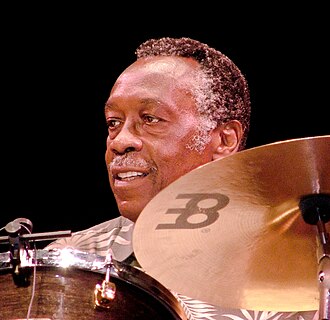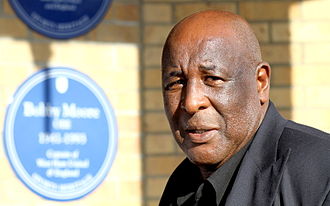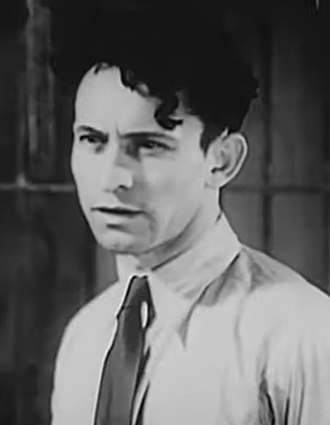Discover Your Roots
SIGN UPDiscover Your Roots
SIGN UPClyde is a male given name of Scottish origin, meaning "Scottish River Name." It is derived from the name of a prominent river in Scotland. The name has a strong historical connection to Scottish culture and geography. Clyde is a popular name with a rich legacy, and it has been borne by notable individuals across various fields, including sports, politics, entertainment, and literature. Additionally, it has been featured in fictional works, adding to its cultural significance. The name's association with a Scottish river evokes images of strength, resilience, and natural beauty. With its Scottish roots and widespread usage, Clyde carries a sense of tradition and heritage, making it a timeless and meaningful choice for parents seeking a name with depth and character for their son.

Clyde Austin Stubblefield (April 18, 1943 – February 18, 2017) was a renowned American drummer, best known for his influential work with James Brown. He gained widespread recognition for his syncopated drum patterns on Brown's recordings, which have since become funk standards. Stubblefield's break in the 1970 track "Funky Drummer" is particularly celebrated and has been extensively sampled in hip hop music since the 1980s, despite often receiving no credit for his contributions.A self-taught musician, Stubblefield's unique sense of rhythm was heavily influenced by the industrial sounds he encountered in his surroundings, shaping his drumming style. He began his professional career in local bands in Tennessee before eventually catching the attention of James Brown in 1965 and joining his band. Stubblefield's recordings with Brown, including hits like "Cold Sweat" and "I Got the Feelin'", are widely regarded as pivotal in shaping modern funk drumming.Following his time with James Brown, Stubblefield settled in Madison, Wisconsin, where he became a prominent figure in the local music scene, performing regularly with his band and collaborating with a diverse array of musicians. His impact on music extended beyond his work with Brown, with solo albums and collaborations showcasing his innovative drumming techniques.Despite facing challenges related to the use of his drum samples without proper credit, Stubblefield's influence on funk and hip hop music remains profound. In

Clyde Vernon Thompson (1910–July 1, 1979) was an American prisoner turned chaplain, famously known as "The Meanest Man in Texas." His life story has been adapted into a film titled "The Meanest Man in Texas," which is currently in the post-production process. Thompson's tumultuous life began with a tragic incident during a hunting trip in 1928, resulting in him being convicted for murder. Despite facing seemingly insurmountable challenges, Thompson's story has become a symbol of hope in desperate situations. Born in Guymon, Oklahoma, Thompson's upbringing was marked by frequent moves and disruptions to his education. His legal troubles began with the fatal encounter during the hunting trip, leading to his conviction and subsequent incarceration in Huntsville, Texas. Despite being within hours of execution, his sentence was commuted to life in prison, and he eventually became a chaplain. Throughout his life, Thompson encountered numerous hardships, including failed escape attempts and witnessing the lynching of a fellow inmate. Despite the difficulties he faced, Thompson's story continues to inspire hope and resilience.

Clyde Cyril Best, born on 24 February 1951, is a former Bermudian football player known for breaking barriers as one of the first black players in England's First Division. He made a significant impact as a striker for West Ham United, scoring 47 goals between 1968 and 1976. Best's move from Bermuda to England at 17 marked the beginning of an impressive career, during which he overcame racist abuse with the support of his teammates, including club captain Bobby Moore. Despite facing racial chanting from the terraces, Best earned a place in the hearts of West Ham fans and showcased his prowess as a strong and powerful player with traditional English center forward skills. Following his time at West Ham, Best also played for Dutch Eredivisie's Feyenoord and various teams in the United States and Canada. His contributions to football extended beyond playing, as he served as an assistant coach for the San Diego Sockers and managed the Bermuda national team. Best's outstanding achievements were recognized with inductions into the Bermuda National Sports Hall of Fame and the award of an MBE for his services to football and the community in Bermuda. After retiring from coaching, Best returned to Bermuda, leaving a lasting legacy in the football world.

Robert Clyde Packer, also known as Clyde Packer, was a prominent figure in Australian media and business. Born on July 22, 1935, as the son of media mogul Frank Packer, he played a significant role in various business ventures and media activities. From 1964 to 1976, he served as a member of the New South Wales Legislative Council, representing the Liberal Party. Packer's contributions extended to the music industry, where he founded the successful independent record label, Spin Records, which released hit singles and albums, including The Bee Gees' "Spicks and Specks" and the original Australian cast recording of the rock musical Hair. Later, he relocated to the United States, where he resided until his passing on April 8, 2001. Packer's legacy continues to be remembered for his diverse business endeavors and contributions to the media landscape.

Clyde Raymond Beatty (June 10, 1903 – July 19, 1965) was a renowned animal trainer, zoo owner, and circus mogul who rose to fame as one of the most celebrated circus performers and animal trainers in the world. Born in Bainbridge, Ross County, Ohio, Beatty's career in the circus industry began when he joined Howe's Great London Circus in 1921 as a cage boy. His exceptional talent and dedication led to his rapid ascent, and he eventually owned several circuses, including his own Clyde Beatty Circus from 1945 to 1956.Beatty became famous for his daring "fighting act," where he fearlessly entered cages with wild animals armed with a whip and a pistol, showcasing his courage and expertise in handling ferocious beasts. His performances often featured a remarkable 43 lions and tigers, earning him a world record. Beatty's self-confidence and theatrical flair propelled him to circus stardom, and he also ventured into films, television, and radio, solidifying his status as the epitome of a lion tamer for generations.Despite facing challenges, including a lion mauling and a tumultuous personal life marked by marriages and tragedies, Beatty's legacy endures. He passed away at the age of 62 in Ventura, California, leaving an indelible mark on the world of circus entertainment. Today, a museum in his hometown of Bainbridge, Ohio, pays tribute to
All images displayed on this page are sourced from Wikipedia or Wikimedia Commons.We use these images under their respective Creative Commons or public domain licenses. Wherever applicable, author attributions and license information are provided. If you believe an image is used incorrectly or outside its license terms, please contact us so that we can review and correct the issue.